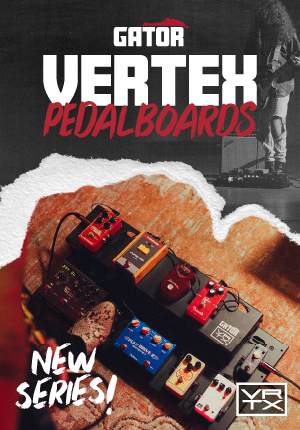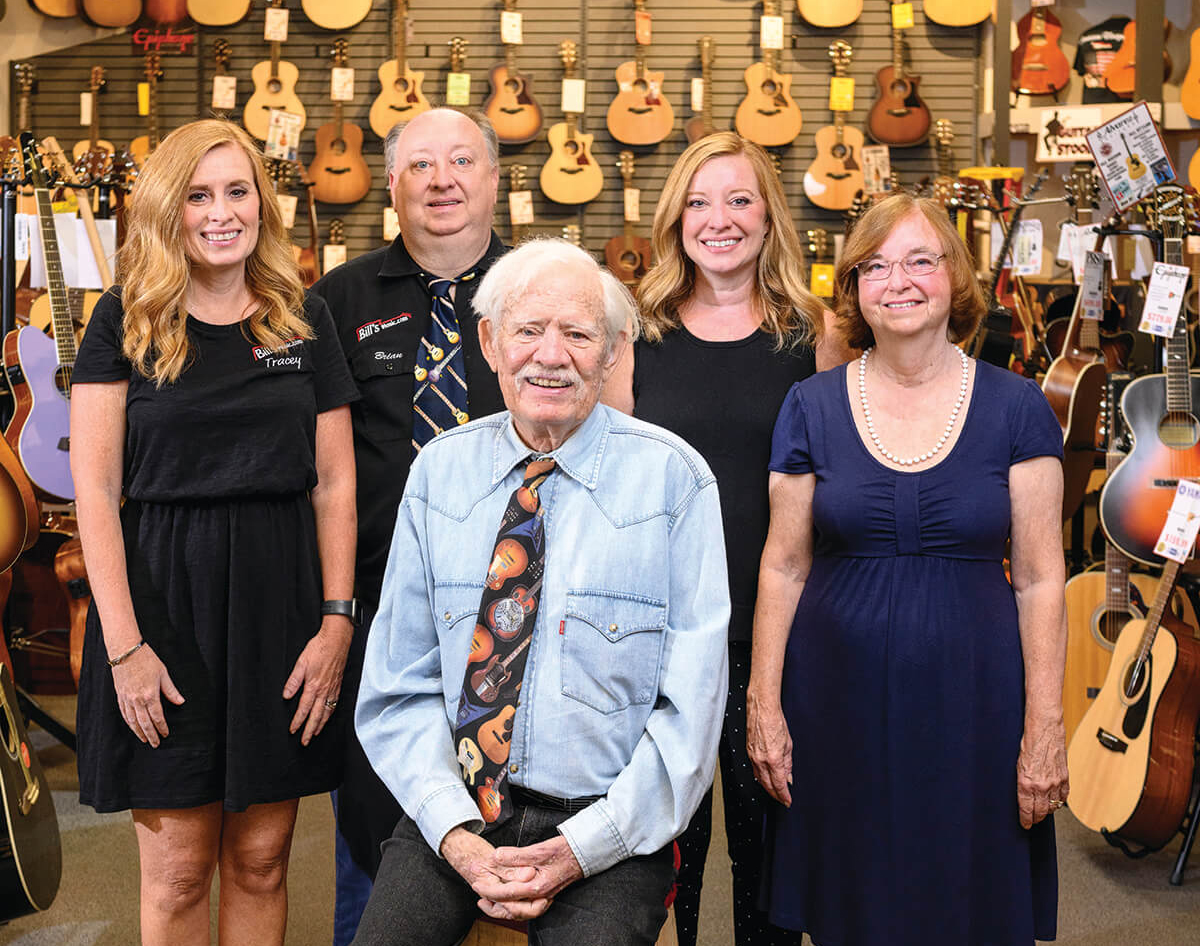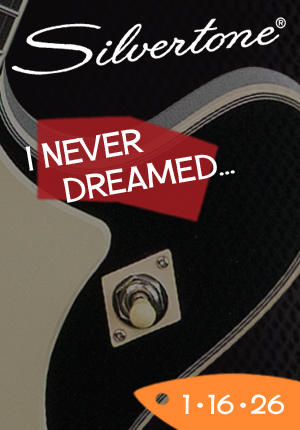
Springfield Music’s Donovan Bankhead
The rise of manufacturers selling direct has been inevitable in MI and was exacerbated by the general public’s rush to instrument purchases in pandemic and the new challenges being seen at retail. Some retailers have strong opinions, others are taking more of a wait-and-see approach. Regardless, it’s a topic that always sees some kind of reaction, and compiling much of that here provides a fascinating glimpse at where we’re headed.
“To be honest, I think a certain amount [of] direct-to-consumer is an inevitability, but my concern from the industry perspective is the effects of it,” said Amanda Rueter, vice president of finance at Springfield Music in Springfield, Missouri. “And right now, having gone through a pandemic, with just a certain amount of uncertainty there in the market, there’s been a certain shift in how people are buying and if it shifted too much away from the local music stores.” Rueter added that she feared direct sales could have long-term ramifications. “They could take it too far, and negatively impact enough dealers, and if you lose the dealers, they start to lose the entire market,” she said.
Donovan Bankhead, Springfield Music’s president, voiced protectiveness of dealers as well. “Vendors will need that dealer network,” he said. “And if they screw that dealer network over for short-term gain, then that’s going to be very shortsighted on their part. They should put their dealer network first, because the dealer network is the largest [thing] they’ve got, and it’s the one that’s supporting and advertising their brand for them.”
Mike McAfee, buyer and sales manager at Maxwell’s House of Music in Jeffersonville, Indiana, also asserted manufacturer direct sales are short-sighted. “It’s easy for a retailer to get mad and stomp their feet and make a fist and yell,” he said. “It’s just not realistic that it’s not going to happen and continue to happen. But if a retailer isn’t looking like a partner to a manufacturer, you’re probably going to have a less successful business plan five, 10, 15 years down the ‘pike, because this is a partnership situation. You cannot tell me that one of these big manufacturers can give any kind of care or build any kind of relationship with these end-users, simply because there’s no face to face.”
McAfee cited it particularly challenging as a buyer and sales manager to have stock on back order, and then go on that manufacturer’s customer-facing website and find it freely available.
“If a company has a hundred-thousand dollars worth of product that I’ve ordered on back order, but I can go to their website and see every bit of it available or go into a new facility in the city where they do the primary building of their product and see it on display and for sale there, I feel like there’s not really a reality to me waiting for product,” he said.
Bankhead made the same point. “I’ll tell you one thing for sure that does piss me off is when they can’t supply product to the dealer network, but yet they have product on the website, and Fender has done that some lately,” he said.
MI retail consultant Billy Cuthrell has seen similarly unfair practices at manufacturing. “I had a couple manufacturers that started selling direct, [when] they were making a lot of demands on us for meeting dealer requirements,” he said. “There was one occasion where they had a blowout on some products that they hadn’t lifted MAP restrictions on me yet. When I called them on it, they just didn’t really seem to care.”
Leslie Stirm, owner of Instrumental Music Center in Tucson, Arizona, broke down how uncomfortable this type of competition can be for retailers. “When you use the Amazon platform, you’re competing against your own platform,” she said. “They will always get the buy-box, and they will always win at the end of the day. I understand why vendors want to do it. Man, it is so hard to compete against your vendor though. That’s just embarrassing.”
One thing manufacturers do to level the playing field for vendors is if a customer buys from them direct, they’ll issue a credit to that customer’s local dealer. “I think that’s the best-case scenario, honestly,” Stirm said. “If there could be a situation where a customer calls up and says, ‘Hey, I need this,’ and we don’t have it in stock and the vendor drop-ships it to them, and then we get a small percentage of it, that would be a really good partnership. Instead of the vendor taking the whole kit and caboodle, share it with the local retailer that has actually done the marketing and advertising for them over the years.”
Others weren’t so sure. “It sounds terrific,” McAfee said. “It has yet to happen.”
Some find fault with such credit systems because they deprive stores of a chance to form a relationship with that customer. Bankhead saw it differently. “You’ll never see that customer anyway,” he said, “beause there are some people that just prefer the convenience of shopping online. I understand that.”
Cuthrell outlined one way suppliers could more fairly treat retailers if they’re opting to sell direct — in-store exclusives. He suggested manufacturers could propose, “OK, we’re selling direct, but how about if we have a SKU that’s just specific to your brand?” He added, “I had that in my store.”
Robert Christie, president at Central Music Distribution and A & G Central Music in Madison Heights, Michigan, has seen manufacturers tell retailers, “These are the products that you must have hanging on your wall.”
“That’s an interesting kind of side circus to the whole circus,” he said. “It’s like, ‘Well then, are you asking me to be your showroom? How long am I going to last doing that?’”
A & G Central Music is a school music dealer, and Christie pointed out what the store can do versus manufacturers selling direct. “We are on the ground helping to create the demand for this product and then [in] a position to place that product right inside, in this case, inside the classroom,” Christie said. “This is like the very beginning of the journey for these people, and they’re also very young, so let’s put a brand into their hands and ensure on our end that it’s a good experience and our manufacturer is doing a good job. Now, you can potentially have a lifelong user of that product.”
According to Anne Rohosy, chief human resources and transformation officer at Gibson Brands, moves into direct retail sales, as Gibson has recently made with its Gibson Garage in Nashville, Tennessee, are good for MI overall. “That’s been very positive for the industries that have been able to do it,” she said. “It creates the ultimate consumer experience in a very pure form for that specific brand.”
Rohosy previously held positions at clothiers Levi’s and Nike, which, notably, have their own store fronts. She weighed in on what a brand-specific store can do for retailers. “It’s working with the different assets that the companies can put together for a retail environment,” she said. “Partnering with these retailers will improve that experience. [They’ll] understand what’s being done and how they can then take those tools back into their stores and make [them] fit within their environment.”
Rohosy said the current level of demand for consumer products like guitars is definitely not to be taken for granted. “There is a consumer pent-up demand out there that you want to be respectful of. There’s a level of frustration that can come through from a consumer when they can’t get their hands on it.”
That, she said, is why retail is still so essential, and retail and manufacturing talking to each other is key. “How you do it is you just keep on making sure that you’ve got great communication going on between your retailers and your brands [and that] you have a strong commercial team that can keep that communication open, making sure that you’re tracking deliveries, that you’re tracking future orders [and] that you’re on top of where your growth can be as a company, all in service to the consumer.” MI











